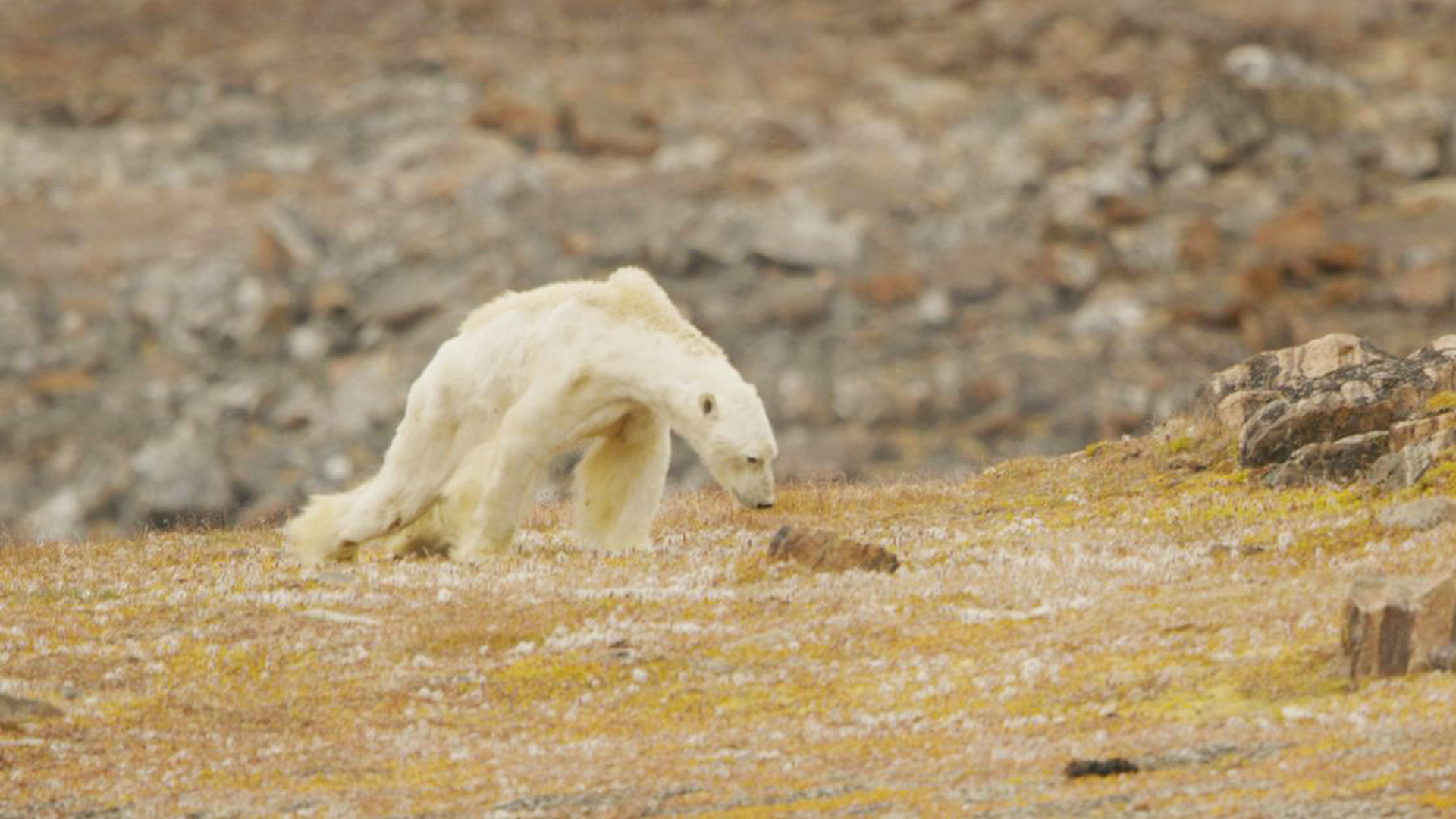PAUW was de late night talkshow van BNNVARA met presentator Jeroen Pauw. Het gesprek van de dag met de hoofdrolspelers uit het nieuws, live vanuit Amsterdam.
De uitgemergelde ijsbeer: wat kritische kanttekeningen
•
121 keer bekeken
• 
Dit is hoe klimaatverandering eruitziet, viel te lezen onder een video van National Geographic van een uitgemergelde ijsbeer, die al scharrelend een gezicht gaf aan het smelten van de poolkappen. Maar volgens veel wetenschappers is dat verband niet zo evident als het lijkt.
Nationale Geographic-fotograaf Paul Nicklen filmde de ijsbeer op Somerset Island, in het Canadese Nunavut. De veronderstelde oorzaak van de uithongering: een opgewarmde aarde met als gevolg gesmolten zee-ijs, waarvandaan ijsberen op zeehonden jagen.
Nicklen was op Somerset Island voor zijn werk voor SeaLegacy, een organisatie voor natuurbehoud. Een van de oprichters van SeaLegacy plaatste op haar Instagram-profiel een foto van het dier, met een beladen bericht.
Advertentie
Dit is reclame van STER
Een bericht gedeeld door
Cristina Mittermeier
(@cristinamittermeier) op 5 Dec 2017 om 8:58 (PST)
Kanker, misschien?
De beer ging viral. Maar diverse wetenschappers stelden in de media de nodige vragen. Want hoe weet de fotograaf zo zeker dat dit dier het slachtoffer was van klimaatverandering? En sterven niet alle ijsberen van de honger of ziekte, aangezien hij geen natuurlijke vijanden heeft?
Bioloog Jeff Higdon plaatste op Twitter de volgende kanttekeningen:
That bear's in rough shape, no doubt about that. There have been photos and videos of emaciated PB going back 10 years, at least. And some PB have been starving for as long as PB have existed. I suspect that one has other issues, which I'll get into below.
Videos like this tug at heartstrings and aim for emotional responses. But they have sig potential to backfire because they make the deniers dig in even more, partly because over the top statements that accompany them are usually easy to pick apart.
Statements like "PB are going extinct and here it is in real time" (original statement assoc w/ video said something to that effect) are easy to attack, and thus don't help IMO.
Depending on where on Baffin was this taken, it would be a bear from one of 5 mgmt units. Likely east Baffin coast given the Inuit camp (not much human activity on west side of Foxe Basin), so prob from Baffin Bay or Davis Strait MU.
Both considered "stable" by IUCN SSC (2017 data). Could be Lancaster Sound MU if on north Baffin coast too, that one is "data deficient", but certainly not collapsing in a flurry of starving PB.
So to consider this bear to be in any way representative of the bears in the population, whichever one it's from, would be incorrect and misleading.
@grizzlygirl87
raised some great points along these lines.
This animal would fall way outside the 95% CI for body condition in a sample from any of these MUs. Shouldn't be ignored, of course, but shouldn't be treated as representative either.
Now, for what I think ("think" being the operative word, because I def don't know with any certainty) is going on with this particular PB - it has an aggressive form of cancer.
Osteosarcoma, a type of bone cancer, has been recorded in PB (griz too). Source is "Zoobiquity: What Animals Can Teach Us About Being Human", a 2012 book by Dr. B.N. Horowitz and K. Bowers (you can see this section via a Google Books preview if interested).
I can't find any published lit about it in bears, unfortunately, and I'm certainly no cancer expert. But it's fairly common in dogs (leading cause of death in golden retrievers, according to that book) and many of the symptoms described are being shown by that PB.
(Fun fact I learned today - there's a National Canine Cancer Foundation w/ an awesome webpage).
That bear is starving, but IMO it's not starving because the ice suddenly disappeared and it could no longer hunt seals. The east Baffin coast is ice free in summer. It's far more likely that it is starving due to health issues.
Last one (I think...)
What the Sea Legacy crew should have done was contact the GN Conservation Officer in the nearest community and had this bear put down. And necropsied. The narrative of the story might have turned out quite different if they had.
What the Sea Legacy crew should have done was contact the GN Conservation Officer in the nearest community and had this bear put down. And necropsied. The narrative of the story might have turned out quite different if they had.
Lang verhaal kort: Higdon vermoedt dat de ijsbeer aan een ziekte lijdt, mogelijk een agressieve kanker. Hij stelt: de kust in dat gebied is weliswaar vaak ijsvrij, maar de populatie ijsberen leeft er goed.
Waarom die ijsbeer zo uitgemergeld was, is niet te achterhalen, schrijft Higdon aan het einde van zijn twitterbetoog. Hij stelt dat SeaLegacy wildbeheer had moeten inschakelen om het beest uit zijn lijden te verlossen. Autopsie had een heel ander verhaal kunnen vertellen. Of het dier nog leeft, is onbekend.
Feit is: de gemiddelde temperatuur op aarde steeg tussen 1997 en 2011 zo’n
0,11 graad
; poolgebieden warmden veel sterker op.
